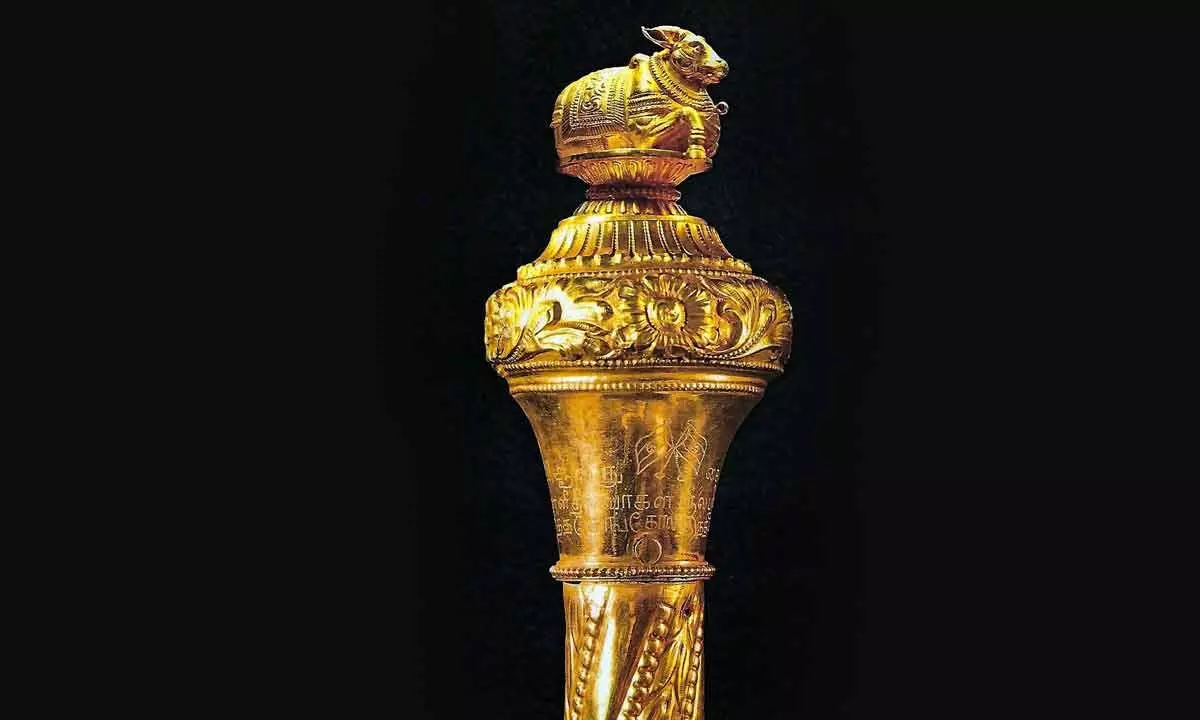‘Sengol’ to remind of righteous governance

New Delhi: Installation of the golden sceptre 'Sengol' in the new Parliament building will be a historic moment for India as it will serve as a reminder of the responsibility to uphold righteous governance for the nation. Stating this on Wednesday, Union Home Minister Amit Shah said the importance of the 'Sengol' sceptre emerged when Lord Mountbatten, the then Viceroy of British India, asked Nehru about a symbolic transfer of power.
The word 'Sengol' is believed to have been derived from the Tamil word 'semmai', which refers to excellence. He said a historical event is repeating itself. Sengol is a cultural heritage. “This incident is related to August 14, 1947. This Sengol has played an important role in history.
However, it did not come to our notice for so many years. Nehru accepted it from the Britishers on August 14, 1947,” Shah said at the conference. Shah said that Sengol holds huge importance in Indian culture, especially Tamilian culture.
“Sengol has been important since the time of the Chola dynasty. Till now it was kept in a museum in Allahabad but now it will be kept in the new Parliament, he said.
When India became Independent, it is learnt that Nehru had sought the advice of C Rajagopalachari, the last Governor-General of India who hailed from Thorapalli in Tamil Nadu's Krishnagiri district (then the Madras Presidency).
Rajaji, inspired by the Chola dynasty where a similar ceremony was held to transfer power between kings, suggested the use of the 'Sengol'. Sources said that Rajaji enlisted the support of a religious body of Tanjore district to craft the 'Sengol and Chennai-based jewellers Vummidi Bangaru Chetty created the object. The 'Sengol' is five feet long and features the majestic figure of Nandi, the divine bull, on top as a representation of 'nyaya', or the embodiment of justice and fairness.








